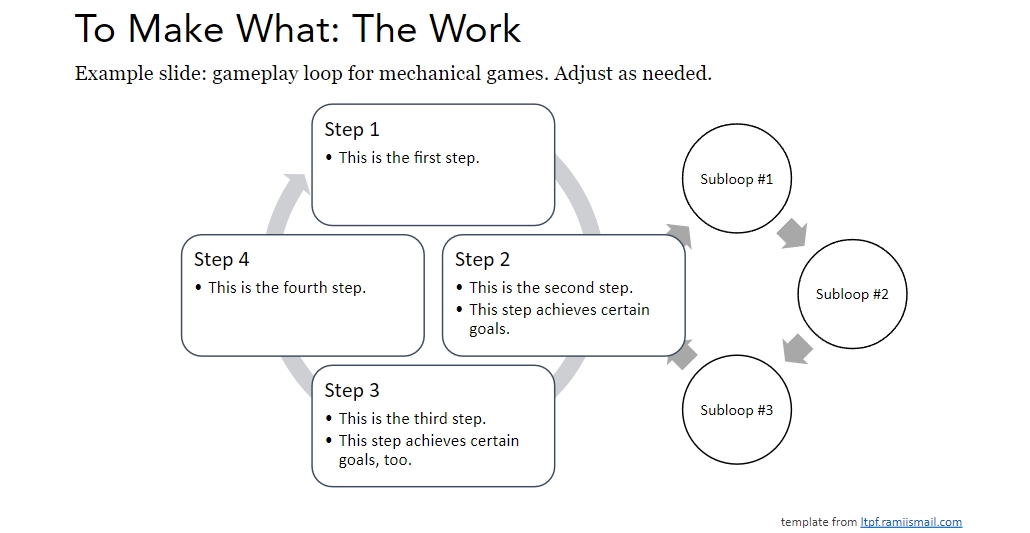What is the best way to pitch a game to a publisher? Rami Ismail, experienced developer and renowned games industry ambassador, has been there, done that. Here are some useful tips on presenting your project as a business case.

Last week, Ismail shared a detailed pitch template on his Levelling The Playing Field blog. So why is it special and how is it different from similar decks?
A lot of the available existing decks are made by publishers to benefit publishers (ie. starting with the budget) to help them filter faster, or they're just super complicated and complex by trying to shove everything into a single deck. This one is optimized for developers on their first or second game and focuses on developers having the most opportunities to prove credibility and ability to execute on the idea.
game developer, consultant
Ismail’s template is designed to create a 10-15 minute presentation, which should be enough to grab the publisher’s attention and lead to further negotiations. Another important thing is that using these tips should help developers sell not their game, but a business case, to convince the funder that their partnership will be beneficial.
The full pitch template is available on Google Slides. It contains detailed explanations and 18 hidden slides that provide additional context.
Here are the sections that a pitch deck must include:
- Who is making a game? — team members, their experience/achievements, and shipped projects;
- Why did your team decide to make this specific game? — this section should also introduce the “problem” your game will solve;
- What will the final version of your game be like? — what makes the game stand out, what is the existing progress on the project (vertical slice, prototype, mock-ups, etc.), its unique selling point, gameplay loop, and tech stack;

Example slide describing a gameplay loop (via LTPF)
- How can your game make a profit and why can it be a good business case? — prove that there’s a market for your game by doing a comparative analysis of several existing titles;
- What do you need from a publisher/investor? — time, budget, etc. (“If you end up too high – there’s room to negotiate. If you end up too low, you’ll fail the pitch immediately”).
Following these guidelines should help devs avoid common mistakes, but it is always better to create your own presentation that would fit your specific case.
And when it comes to contacting publishers, here is a really useful tip: “I generally recommend finding your five favourite publishers, excluding them, and then e-mailing everybody else that publishes on your platforms of choice. Don’t filter them, let them filter you.”
For those who don’t know, Rami Ismail is the co-founder of now-closed studio Vlambeer (Ridiculous Fishing, Nuclear Throne). He is also the creator of presskit(), a free solution for creating game press kits.
Ismail’s template is a really useful tool for emerging game developers. We would also recommend this pitch deck from BizDev expert Gwen Foster, which could be a great starting point and an example of a slightly different approach.

